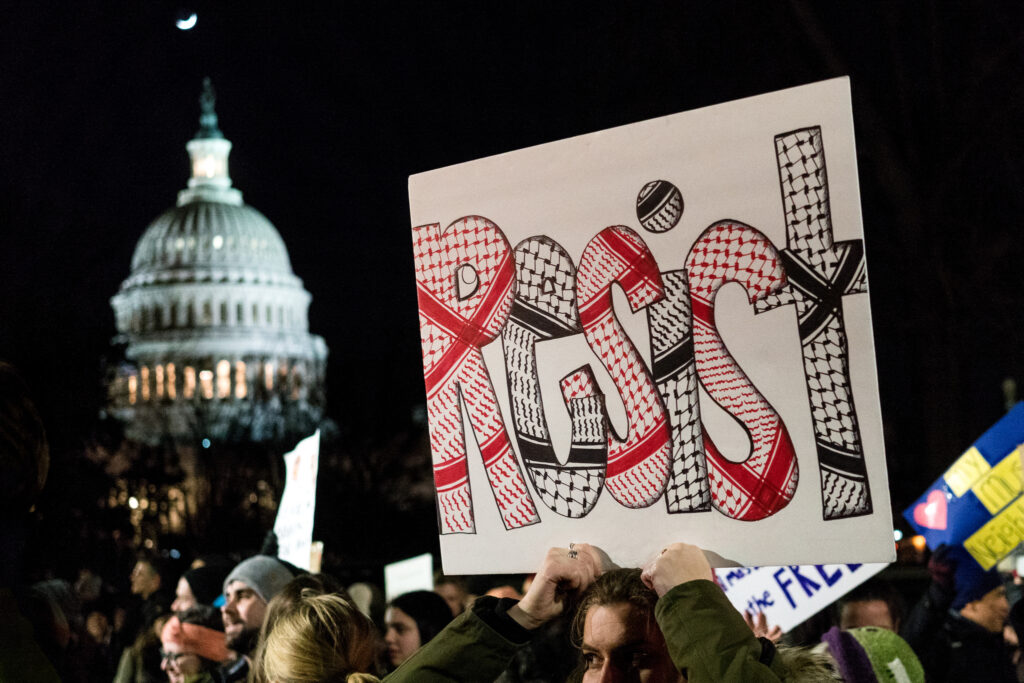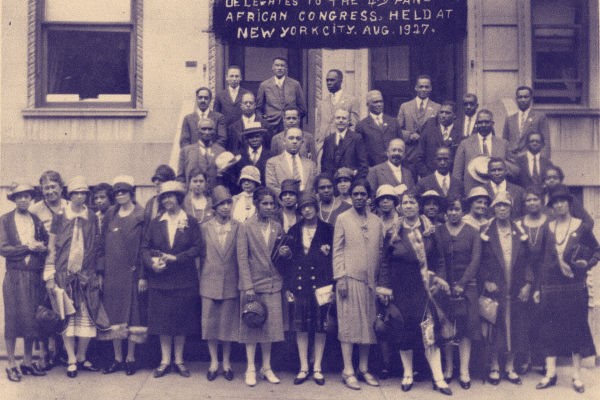What can we do to support the government administrators—the Bartlebys, as Judith Levine calls them—who would “prefer not to” cooperate with Trump’s orders that they believe to be immoral or unconstitutional? Career civil servants, unlike political appointees, are supposed to implement the policies of a new administration, regardless of their personal political values. But the Trump administration is presenting many workers with job conditions they never imagined when they entered government service: doing their jobs may mean subverting the fundamental aims and values that brought them into public service in the first place. The message delivered by Press Secretary Sean Spicer, to put up or get out, merely makes public the choice they face.
Civil servants, unlike political appointees, are supposed to implement administration policies regardless of their own political values.
Take the executive order on immigration. I am sure that many employees of the Departments of State and Homeland Security are thinking about the SS St. Louis, the 1939 ship of 907 refugees fleeing Germany that the State Department barred from docking in America, forcing it to return to Europe. An estimated 254 of its passengers died in the Holocaust. Some of today’s State Department employees are no doubt wondering how many Syrian refugees’ lives will be lost because they helped to slam the gates shut this time. Or think of the Justice Department lawyers who will surely be asked to investigate bogus claims of voting fraud, knowing this will only chill legitimate efforts to register new voters. Or the employees of Health and Human Services who may be asked to implement regulations stripping healthcare from the ill. Or employees of the EPA asked to dismantle regulations guaranteeing safe drinking water, or to disappear the science of climate change from government databases.
Career government workers face essentially three choices when confronted with policies they see as abhorrent to their values and those that underpin our nation’s identity. First, they can keep their heads down and do their jobs without thinking about the consequences. For workers who see the new policies as unjust, this is not an option, but rather a recipe for deep alienation and misery. They cannot allow themselves to be directly complicit in the harm their government does. While any institution depends on its workers suppressing their own judgments about decisions made by organizational superiors, this social convention must be suspended when one reasonably believes that to acquiescence will be to aid in the execution of grievous harm. In other words, current circumstances fall outside the normal range of organizational life.
Second, dissenting employees can try to work clandestinely from within, covertly slowing down or sabotaging policies they object to, working to expand the marginal protections of the programs that survive, offering internal arguments to soften or shift ongoing policy discussions. This option may appeal to dissenting workers who reasonably fear that, were they all to be replaced by Trumpian zealots, things would be worse yet.
Third, workers can take the Bartleby approach and directly refuse to implement policies. They can resign, or threaten to resign, unless policies are changed. Such a position amounts to a dare to be fired—a dare that a few senior figures in the State and Justice Departments have already taken.
The choice is both a moral and a material one for most workers.
Of these three choices, the last two present the difficult moral choice between maintaining one’s principles and integrity and working to ameliorate the worst consequences. I do not presume to offer a general answer to whether it is better to work from within, at the cost of unavoidable complicity in the collective harm, or whether it is better to defy or resign. The answers will be very particular, based partly on an actual weighing of consequences of what a given employee can feasibly accomplish from within, versus the effects of taking a more decisive stand, either quietly or publicly. And the answers will also depend on how individuals balance the claim of acting on clear principles, versus a pragmatism of outcomes.
The difficulty of this moral choice is inescapable. But we should be clear that the choice is also a material one for most workers. While very senior figures in government may be able to move with relative ease to a private sector position (or may be close to retirement), midlevel employees face mortgages, childcare costs, and a plunge into an unknown job market. They must not only weigh their conscience but price it, too. This weighing of material concerns (and the effects of those choices on dependents) against the problem of complicity adds a further and, I contend, unnecessary complexity.
In fact, we can make the material choice easier, so that government workers can focus on the moral choice before them. Many of us citizens have been wondering what we can do about these policies apart from showing up at demonstrations with clever signs. And while business leaders, principally from Silicon Valley—but also including the leadership of GE and Ford, as well as the Koch brothers—have been forceful in their statements about the immigration order, their actions have so far also been mainly symbolic.
So here is a proposal: business leaders can join with ordinary citizens to create a “Public Conscience Fund” to alleviate some of the practical costs for workers who would like to stand on principle. Such a fund could both be a repository of private sector job possibilities, tuned to take advantage of the skills government workers bring, as well as a financial fund, on the model of a strike fund, to provide some stopgap funding for those who find themselves unemployed or suspended without pay.
A Public Conscience Fund would help civil servants say “Fire us if you dare—otherwise, rethink this policy!”
At the individual level, such a fund would help conscientious employees avoid having to choose between their principles and their paycheck. Thought of collectively, especially if implemented quickly and widely publicized, such a fund could have a powerful political effect if it enabled many workers to stand together and say, “Fire us if you dare—otherwise, rethink this policy!” Were large numbers of employees to stand on principle, the Trump administration would be threatened with the prospect of crippled agencies. Such a stance would still involve real risk and sacrifice by conscientious employees, but it would at least mitigate some purely material concerns in the moral calculus.
There are of course administrative questions to be addressed in doling out such a fund, but they are not insurmountable. Funds and resources could be allocated through government employee unions, such as the American Foreign Service Association or the National Treasury Workers Union, to ensure that the claimants are legitimate. If the fund drive results in more donations than are claimed, any excess can be redirected to appropriate charities or advocacy groups, per the donors’ preferences.
How about it, Jeff Bezos, Sergey Brin, Tim Cook, Reed Hastings, Jeff Immelt, Charles Koch, Howard Schultz, and Mark Zuckerberg? You have all been forthright in your statements, and some of you have gone beyond words. Starbucks, for example, announced that it will seek to hire ten thousand refugees. If you seed the fund, and make available pathways to work, you can stoke an even more powerful resistance to policies that directly undermine the global interests of your companies.
A Public Conscience Fund would also provide a direct way for those of us outside government to support those inside, to work together to reclaim a vision of American justice and evidence-based policy that otherwise seems to be falling into oblivion. We have voted, we have marched, now let us ante up.








